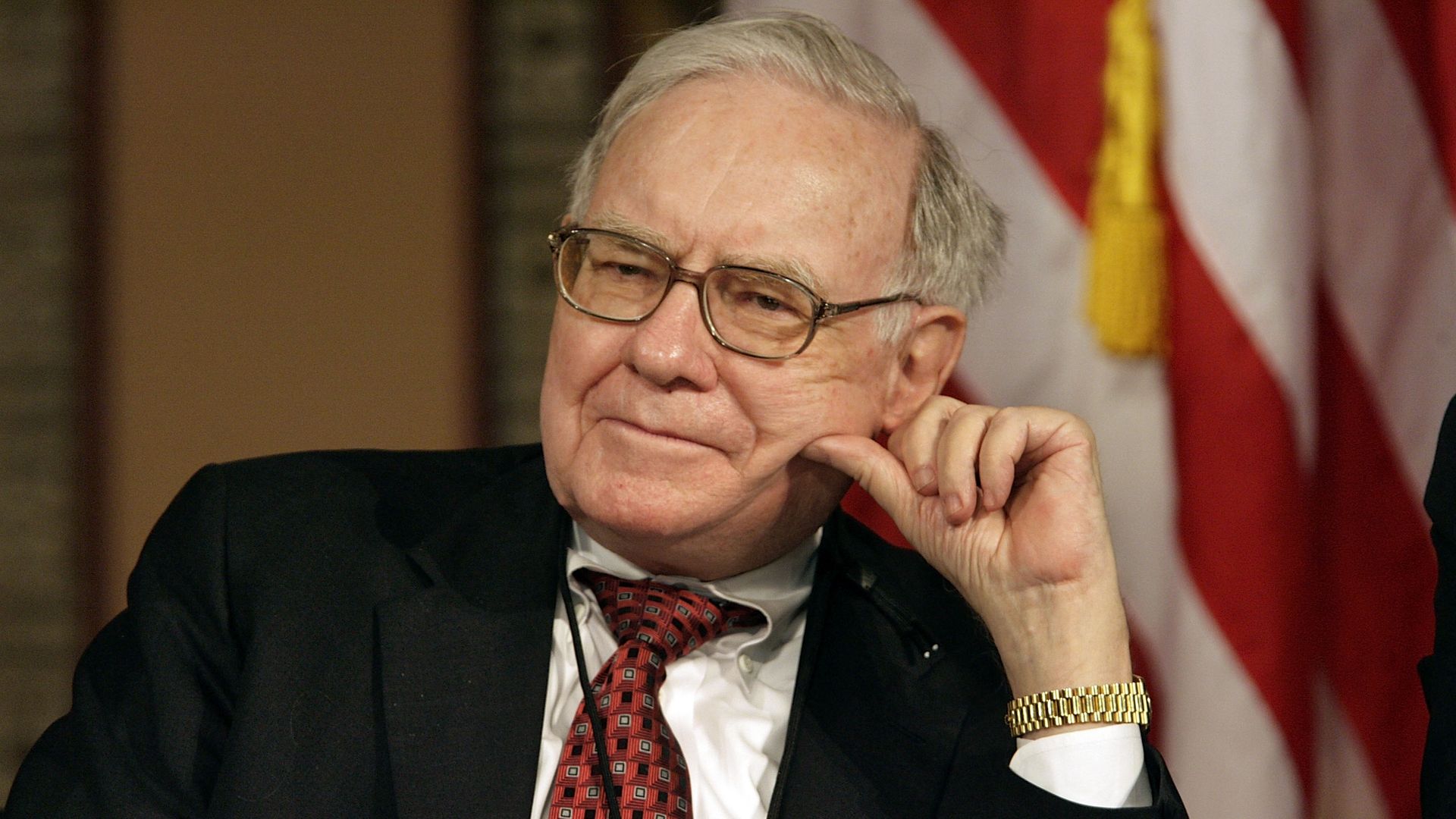
WASHINGTON - MARCH 13: Warren Buffett, chairman and CEO of Berkshire Hathaway Inc., participates in a panel discussion, "Framing the Issues: Markets Perspectives," at Georgetown University March 13, 2007 in Washington, DC. Treasury Secretary Henry Paulson hosted the "Treasury Conference on U.S. Capital Markets Competativeness," a day-long program to focus on capital market issues like regulation, competition and other related topics. (Photo by Chip Somodevilla/Getty Images)
Investing legends Warren Buffett and Charlie Munger on Saturday urged the U.S. and China to settle their widening differences, arguing the superpowers have a "mutual interest" in continuing cooperation.
Why it matters: On multiple fronts, the world's two largest economies have found themselves at repeated loggerheads, with few signs of near-term reconciliation.
- As tensions have worsened, some observers have mulled the extent to which both countries can afford to decouple from one other, the consequences of which would cascade across the global economy.
Driving the news: At a question and answer session at Berkshire Hathaway's annual meeting in Omaha, the billionaire dynamic duo insisted the U.S. and China need one another.
- For his part, Munger cited tech giant Apple as a shining example of how the Sino-American relations should work, and blasted rising tensions as "stupid, stupid, stupid."
- "If there’s one thing we should do is get along with China, and have lots of free trade with China…it’s in our mutual interest," Munger stated.
- Attempts by either side to rattle the other should be responded to "with reciprocal kindness," the 99 year-old said.
What they're saying: Buffett, the 92-year old "Oracle of Omaha" whose advice on investing and markets has been widely followed for decades, argued both countries "have to get along with each other."
- "Part of it is how far you can judge how far you can push the other guy without them reacting," Buffett said.
- "The alternative will drive them both into destruction, and increase the probability of something going wrong."
Buffett likened U.S.-China tensions to the Cold War, where America stared down the Soviet Union under the threat of a nuclear conflict that would lead to "mutually assured destruction."
- That policy "kept a lot of things from happening...but Cuba was a close call," Buffett said.
- "It's imperative that both U.S. and China understand what the game is and both can't push too hard, but both can prosper."
No comments:
Post a Comment